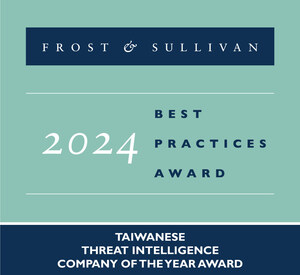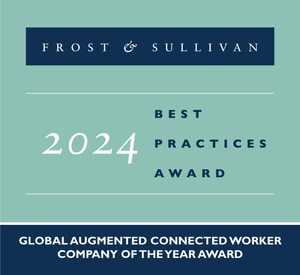Tissue Diagnostics Companies Focus on Automation and Partnerships to Expand Revenues
Market is expected to reach $6.9 billion in 2022 due to its evolving role in companion diagnostics, finds Frost & Sullivan
SANTA CLARA, Calif., Aug. 2, 2018 /PRNewswire/ -- Clinical laboratories' intensifying demand for a robust solution to manage data and the declining availability of skilled pathologists is making a strong case for the automation of tissue diagnostic systems. Innovations in the automation of staining equipment and novel platforms such as digital immunohistochemistry (IHC) will be significant as automation and the use of an advanced laboratory information system (LIS) are emerging key differentiators in the global market. There will also be strong investment activity in digitization, as digital formats can be integrated within the health information systems and made easily available for diagnostics purposes.
"Another important growth strategy in the tissue diagnostics market is developing end-to-end integrated workflow solutions that can position the company as a one-stop shop," said Supratik Paul, Senior Industry Analyst, Transformational Health. "Collaborations with anatomic pathology LIS (APLIS) vendors and partnerships in emerging markets with instrument distributors will allow them to gain an end-to-end tissue diagnostics portfolio and efficient supply chain, respectively."
Frost & Sullivan's recent analysis, Global Tissue Diagnostics Market, Forecast to 2022, highlights key market participants, customer segments, and restraining factors such as liquid biopsy and reimbursement cuts. It segments the market by pre-analytical staining, advanced staining, and APLIS across the United States, Western Europe, Asia-Pacific, and Rest of the World. This market is expected to register a CAGR of 7.9% from $4.7 billion in 2017 to $6.9 billion in 2022 due to its evolving role in companion diagnostics and use of automation.
For further information on this analysis, please visit: http://frost.ly/2ns
Regional trends in the tissue diagnostic market include:
- United States: It is estimated that 70% of the workflow in a histology laboratory is manual. Therefore, there is an unmet need to automate the process as advanced staining is highly demanding in terms of personal training and hands-on time required from the clinical labs;
- Europe: The number of cancer screening programs administered by governments has been on an increasing trend. In addition, the public is aware of health risks, leading to adoption of technologies such as companion diagnostics (CDx), which leverage tissue diagnostics;
- Brazil: Aging and chronic disease are boosting the growth of laboratories. Brazil comprises ~12,000 laboratories and 45,000 collection centers, which are distributed over the entire country. The announcement of 15 new hospitals under Public-Private Partnership (PPP) contracts opens up great opportunities for healthcare IT systems as well as medical device suppliers.
- China: The industry is evolving to address the growing demand for pathologists. More than 300 private laboratory companies have launched in the past decade;
- India: Recent regulatory framework to revise the pathology lab guidelines, requiring physicians (MD) to authorize clinical lab reports, created a key growth opportunity; and
- Japan: More automation and better laboratory management systems can be expected with growing concerns over old age and shortage of histopathologists as the workload increases. The rising incidence of cancer creates opportunities for tissue diagnostics in Japan. Moreover, Japan has been the pioneer in implementing national-level screening programs for cancer with open access to innovative drugs.
Some of the top companies with innovation-led growth strategies include Roche (VENTANA HE 600), Sakura (Tissue-Tek Genie), Leica Biosystems (BOND RNAscope on BOND-III), Xifin (XIFIN AP Labs), NovoPath (NovoPath AP Software), 3DHISTECH (iSacs), and MIPS (DaVinci).
"Collaborations will be one of the key growth drivers in the tissue diagnostics market, especially partnerships with companion diagnostics (CDx) vendors," noted Paul. "These partnerships will enable contract tissue diagnostic vendors to strengthen their next-generation sequencing (NGS)-based assay capabilities across emerging CDx-enabling technologies such as NGS-based multiplex tests, single molecule real-time (SMRT) sequencing, digital pathology, and quantitative IHC."
Global Tissue Diagnostics Market, Forecast to 2022 is part of Frost & Sullivan's global Life Sciences Growth Partnership Service program.
About Frost & Sullivan
For over five decades, Frost & Sullivan has become world-renowned for its role in helping investors, corporate leaders and governments navigate economic changes and identify disruptive technologies, Mega Trends, new business models and companies to action, resulting in a continuous flow of growth opportunities to drive future success. Contact us: Start the discussion.
Global Tissue Diagnostics Market, Forecast to 2022
K25A-55
Contact:
Mariana Fernandez
T: +1 210 348 10 12
T: +54 11 4778 3540
E: [email protected]
SOURCE Frost & Sullivan
Related Links
WANT YOUR COMPANY'S NEWS FEATURED ON PRNEWSWIRE.COM?
Newsrooms &
Influencers
Digital Media
Outlets
Journalists
Opted In






Share this article